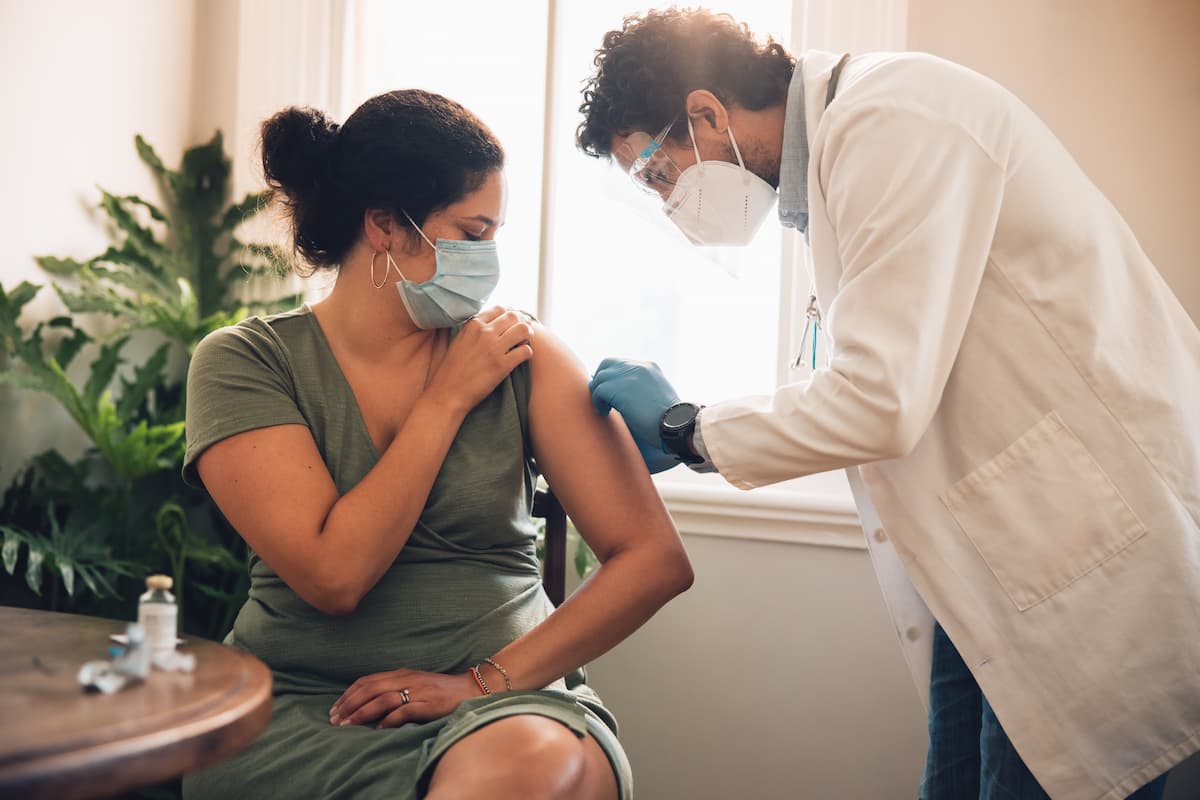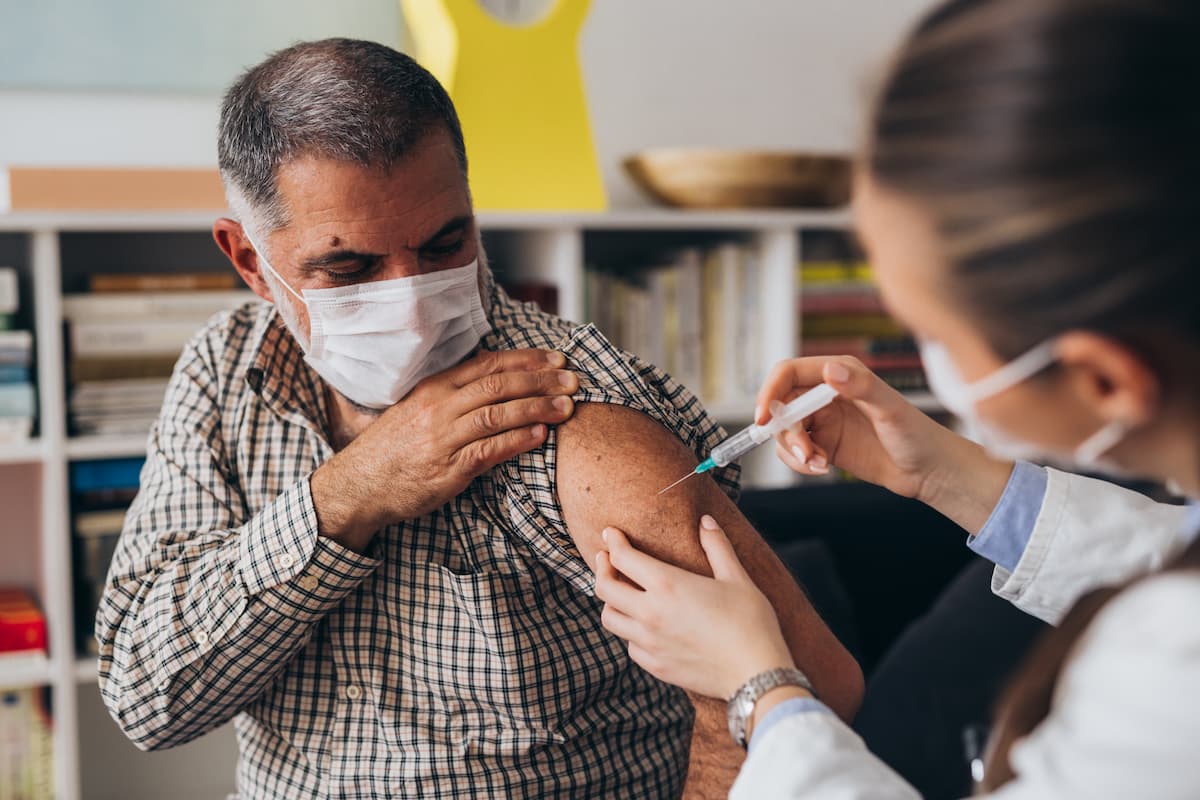Video
The Pandemic May Provide the Infrastructure Necessary to Address the Antimicrobial Resistance Health Crisis
Pharmacy Times® interviewed Kenneth Thorpe, PhD, the former deputy assistant secretary at the HHS during the Clinton administration, on how pandemic preparedness lessons from COVID-19 may help to tackle the antimicrobial resistance health crisis.
Pharmacy Times® interviewed Kenneth Thorpe, PhD, the Robert W. Woodruff professor and chair of the Department of Health Policy and Management at Emory University, who is also the former deputy assistant secretary at the HHS from 1993 to 1995, on how pandemic preparedness lessons from COVID-19 may be beneficial to apply to tackling the antimicrobial resistance (AMR) health crisis that faces health care systems.
Alana Hippensteele: So, Dr. Thorpe, the Biden administration recently released the National Strategy for the COVID-19 Response and Pandemic Preparedness report on how to defeat COVID-19. How does the report address the threat of antimicrobial resistance, and why is it important to prepare for?
Kenneth Thorpe: Well, I think having this 200-page game plan on how to address COVID-19 is very important because there's a unified message in it in terms of the extent of the problem. There are solutions in it that are very clear in terms of vaccine manufacturing, supply, and distribution, enabling the Defense Production Act to bring that element into it, FEMA into it. So I think it's really jump started our response to COVID-19, which I think is very positive.
We need to have something similar for antimicrobial resistance. This is a problem that's been around for years and years and years, yet we really haven't had sort of a unified focus on solving the problem. We have not to date had any type of congressional solutions.
The good news is that there are 2 important proposals sitting in Congress right now that would address the problems underlying antimicrobial resistance vaccines. The challenge with this market is that the return on investment for pharmaceutical companies is low; the payments and the prices are low. Obviously, it's a limited patient population. So, to deal with this, we need a 2-part strategy.
One is to provide financial incentives for manufacturers to develop innovative vaccines. So, there's a proposal in Congress called the PASTEUR Act, which would provide funding up to 3 billion dollars in financing to help get these vaccines online. So, we need to provide the financial incentives to get the vaccines made.
We also need the reimbursement incentives that once they're on the market, that hospitals and health care providers can afford to provide them. So, a 2-part strategy of our group, the partnership to fight infectious diseases is working on both fronts to try to get those legislative strategies put into place.
Alana Hippensteele: Great. What are some of the potential consequences if we do not prepare for health problems related to antimicrobial resistance?
Kenneth Thorpe: Well, the research I've done on this has shown that over the last decade the number of antimicrobial resistant infections is doubled. So, we're up to just under 3 million a year. It's a cost accounting for just under 40,000 dollars, so unless we put into place some initiatives to stem this, the cost to the health care system will continue to increase, the amount of mortality linked to it will increase, and it's really one of the underlying huge health care problems that is going to have broad implications on getting access to health care.
Certainly, if you go in for a surgical procedure, you want to know that you have an antibiotic in place that is going to prevent infection, and if we don't have those antibiotics, it could have a very deleterious effect on surgical procedures overall.
So, we need to find a focus on getting these innovative vaccines into place and make sure that they are affordable. So, if we don't do it, I think the health care outcomes really are going to be very deleterious in terms of patient mortality and costs to the health care system.
Alana Hippensteele: What has the United States done so far to prepare for this health crisis, and what more should it be doing?
Kenneth Thorpe: Well, we need to be doing several things. One is that I think we need to have a public education campaign so the public even understands the extent to which this is a major problem, which it is. I don't think most people really understand the extent to which these superbugs are increasing, these gram-negative bacteria are growing. So, there's got to be first of all an awareness of the problem, and that's something that Department of Health and Human Services and others can really help in really providing public education on the extent of the problem.
Second is that we need these legislative solutions. So, we've got to have these post-market incentives built in so that pharmaceutical companies will get back into the vaccine discovery marketplace and the vaccine distribution. So, as I mentioned before, the PASTEUR Act is in a very important piece of bipartisan legislation that would do that. So, I think we're hoping that this year, if we can get these legislative action items into place, it'll go a long way towards providing the right financial incentives for pharmaceutical manufacturers to get back into the market.
Alana Hippensteele: Can health systems use some of the existing infrastructure created during the COVID-19 pandemic or before in order to begin to address these concerns?
Kenneth Thorpe: Yeah, I think so. The response to any type of pandemic has got to be clear messaging understanding infrastructure, and I think that what's being built up now with the COVID-19 that the Biden administration is doing is clearly very important because it's focusing attention on the importance of discovery, vaccine manufacturing, and vaccine distribution. Those are going to be 3 key elements for antimicrobial resistance as well.
So, having that type of focus and infrastructure in place, we're hoping that the microbial resistance infections can piggyback off the work that COVID-19 from the Biden administration is putting into place.
Alana Hippensteele: Right. What are some of the lessons learned from the COVID-19 pandemic that may apply to concerns related to antimicrobial resistance?
Kenneth Thorpe: Well, I've mentioned this before: One of the key things to me is messaging; that having a clear understanding that COVID-19 is a real problem, that there are ways to try to mitigate it through public health measures and through other measures, such as providing air filtering systems into businesses that kill the virus—that technology exists, and we should be using that right now.
On the AMR side, getting the same type of messaging out that this is a growing problem. We need the pharmaceutical manufacturers in the game to put into place vaccines that are going to be effective against these growing threats.
But to do that, we need to have some public policy and legislative initiatives put into place, just like COVID-19. Obviously, there's a big package in Congress right now—the 1.9 trillion dollars worth of funding to deal with the problem, in terms of distribution in particular, and buying vaccines—we need to have a similar legislative package. Not that scale, but we need to have a similar legislative package for AMR.
Alana Hippensteele: Do you think COVID-19 burnout may cause delays around preparing for future health crises due to the impact of the pandemic on health systems right now? If so, what could be done to address this?
Kenneth Thorpe: Well, I think this has been lingering. I think that the COVID-19 response has been very important because it's drawn attention to the need for vaccines and the need for effective distribution of vaccines. So, as I've said, this is not a new problem with AMR, it's been sitting there for years, but we just haven't had the public policy response needed to deal with the underlying problem.
So COVID-19 provides a pathway of identity and information and attention to the need for vaccines and the need for an infrastructure and distribution system, and I'm just hoping that we can legislatively piggyback off of these COVID-19 legislative efforts.
Alana Hippensteele: Right. What do you think is the value of the pharmacist in addressing the antimicrobial resistance health crisis?
Kenneth Thorpe: Well, I think they're going to be critically important because we want to make sure first of all that our pharmacists and scientists understand which vaccines are effective in dealing with different types of underlying bacterial infections, where there's a urinary tract infection and so on.
So, having the pharmacists as part of the solution will be critical because we rely on them to make sure that we are prescribing the most effective antibiotics to deal with different types of underlying bacterial infections. So, they're going to be sort of the center stage, so to speak, of our response to dealing with AMR.
Alana Hippensteele: Right. Do you have any closing thoughts?
Kenneth Thorpe: No, which is first of all thanks for having me on—this is a problem that's in the COVID-19 world, which understandably is taking 99% of the health policy and public health attention, as well it should. But this antimicrobial resistance issue is a long-standing problem that we need to find a solution for today.
So, I'm hoping that by having the focus on the need for vaccines, the need for infrastructure and distribution, that we can finally address this underlying issue of antimicrobial resistance and get the legislative solutions that we've talked about passed this year. I think that that will go a long way towards providing a solution for us to try to slow the growth in this continued increase in antimicrobial resistant infections.
Alana Hippensteele: Thank you so much for taking the time to speak with me today, Dr. Thorpe. Now let’s hear from some of our other MJH Life Sciences brands on their latest headlines.
Newsletter
Stay informed on drug updates, treatment guidelines, and pharmacy practice trends—subscribe to Pharmacy Times for weekly clinical insights.

FDA Grants Full Approval to mRNA-1273 COVID-19 Vaccine in Children at Increased Risk





